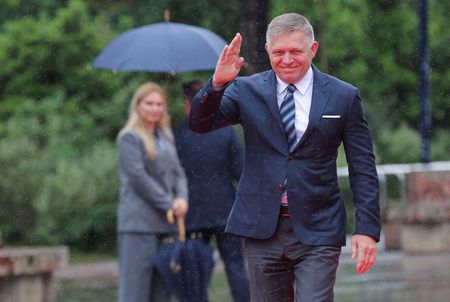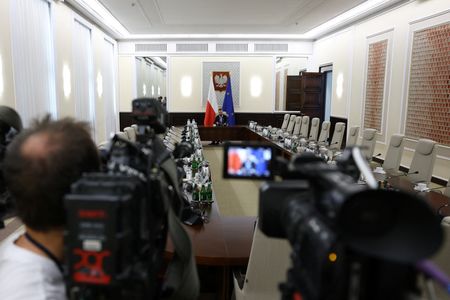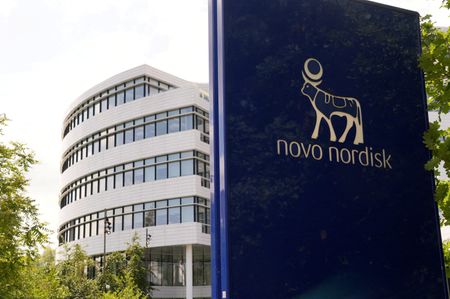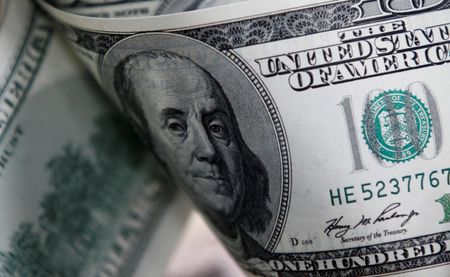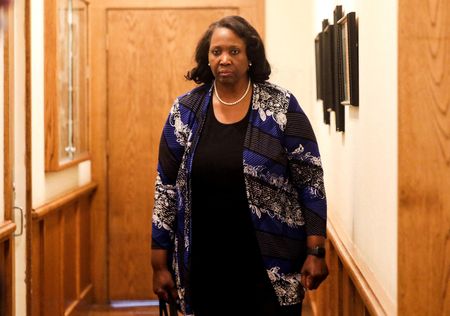By Olivia Le Poidevin
GENEVA (Reuters) -Slovakia’s COVID-19 vaccine sceptic prime minister said on Monday that his country would challenge the adoption of a potentially groundbreaking global treaty on improving pandemic preparedness by calling for a vote at the World Health Assembly.
After considerable disagreements were bridged, World Health Organization member states had agreed in principle on the text of the legally binding agreement in April.
If there is a vote, two-thirds of the 194 WHO member countries must vote in favour for the agreement to pass at the World Health Assembly committee on Monday, before formal adoption by a plenary session on Tuesday.
While the Slovak move is unlikely to gain much backing, supporters of the agreement see it as symbolically problematic following protracted negotiations.
A statement by Slovak Prime Minister Robert Fico said that the WHO Director General Tedros Adhanom Ghebreyesus had called him and asked him not to demand a vote. World Health Organization officials were not immediately available for comment.
“I reiterated that the Slovak delegation is bound by the Slovak government’s instructions to demand a vote on the pandemic treaty,” the statement said, adding that if the vote takes place, the delegation was instructed to oppose the treaty.
“It violates the principle of the sovereignty of the member states and disproportionately interferes with the area of human rights,” the statement said.
The draft accord addresses structural inequities about how drugs or vaccines and health tools are developed. For the first time in an international health agreement, it would require national policies to set access conditions for research and development agreements, and ensure that pandemic-related drugs, therapeutics and vaccines are globally accessible.
It calls for the “widest possible international and regional collaboration” in a pandemic response, “while reaffirming the principle of the sovereignty of States in addressing public health matters”.
The agreement had been seen by many diplomats and analysts as a victory for global cooperation at a time when multilateral organisations like the WHO have been battered by sharp cuts in U.S. funding.
“It contains critical provisions, especially in research and development, that — if implemented — could shift the global pandemic response toward greater equity,” said Michelle Childs of the Drugs for Neglected Diseases initiative, a non-profit research group.
Fico, a pro-Russian populist, has long been a critic of the way the previous Slovak cabinet handled the pandemic. He has said he did not get vaccinated for COVID-19, and was charged in relation to a protest against pandemic restrictions. The charges were later dropped.
(Reporting by Olivia Le Poidevin; Editing by Aidan Lewis)

